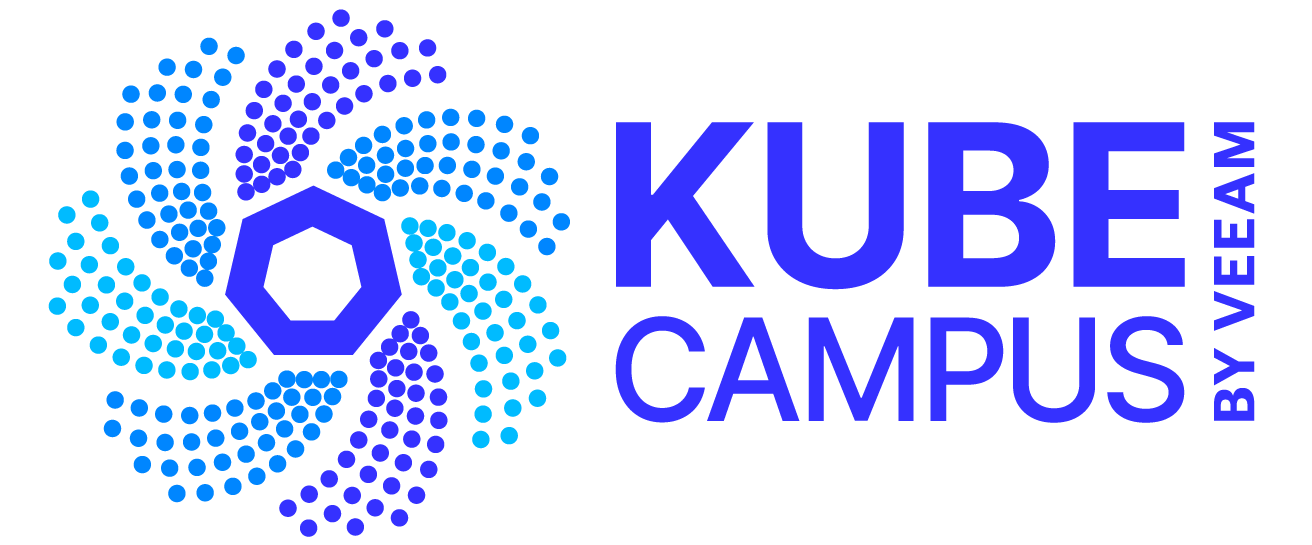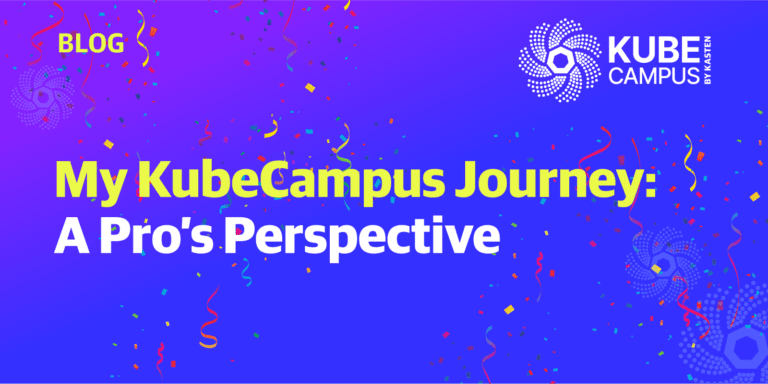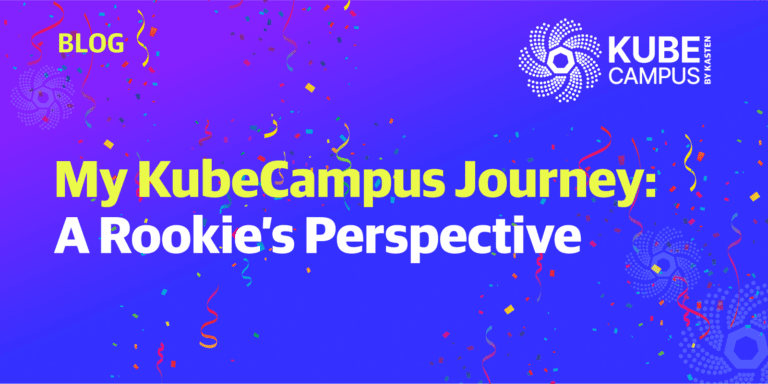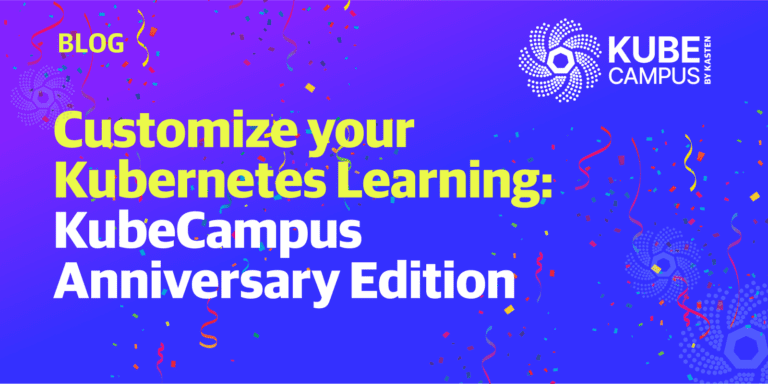I first heard about containerization and Kubernetes a few years ago like everybody else. At the time, I had not given containers — much less Kubernetes — much thought. I had no idea that I would eventually gain enough expertise to use Kubernetes in my day-to-day operations as a senior cloud platform specialist. I’m also now a proud holder of the CNCF Certified Kubernetes Administrator (CKA) certificate and have become a Kasten Kubernetes Learning Site instructor (I have a lot to say below about those glorious labs the site offers).
But getting to where I am today was certainly not easy. While I would not describe my learning experience as un-fun, there were times when it was very challenging. Learning Kubernetes at the beginning of my journey wasn’t even relevant to my job role at the time. So, sitting up at night after the family went to bed reading articles, watching training videos and taking the Kasten Kubernetes Learning Site labs would require a lot of self-motivation to stay the course. That said, the time invested in learning paid for itself in spades.
The Right Start
Before I had even heard about containers, I had been working in the cloud sector, primarily in private clouds. I’d been involved for years in virtualization and storage backups, and there was this “containerization thing” I kept hearing people talk about. Some said it was going to be the new virtualization, and others said it was oriented toward developers. To be completely honest, I thought it was a fad that would pass as I didn’t see much value in it for operations folks.
Wow, was I wrong!
It wasn’t long after that period when there were more discussions on Reddit, at conferences, etc. about containers and their orchestration with this thing Google invented called Kubernetes. Some said containers would replace most of the use of virtual machines just as 90% of operations have shifted from physical to virtual machines. Containers and Kubernetes were going to move into the virtualization space and everything would eventually become virtualized, many said. So, roughly a year ago I decided I could no longer bury my head in the sand and ignore containers. While I had a hunch that Kubernetes might one day help me with my job, I was also curious to know more.
Taking the Plunge
I had my first cluster up and running after perusing countless blog posts and watching hours of YouTube videos. That part was relatively easy — almost anyone can spin up and play around with a Hello World Kubernetes cluster. But I also realized I was far from having a full understanding how it all worked.
I then began spending over two hours a day after dinner learning to integrate Kubernetes in cloud environments. I also studied the mechanisms and components of Kubernetes that would turn out to be relevant to my job involving automating infrastructure, as I would discover later.
In addition to watching videos and reading blog posts — studying PDFs and books is not really my thing — I also began investing in online classes, such as those that Udemy provides.
Hailing from the operations side of DevOps, I wasn’t as interested in learning about running an application like a developer does. Instead, I was more interested in learning to build and manage the networking aspect of Kubernetes infrastructure — this Kubernetes knowledge path was also aligned with my professional and personal interest in IT in general. In other words, I’m definitely more on the Ops side of the DevOps scale, and that is the side of Kubernetes I was interested in learning about.
Taking online classes, watching videos and reading blogs certainly did not hurt, but this learning process alone was lacking. Understanding and learning how to work in a Kubernetes environment requires hands-on learning and practice. Missing was the ability to apply what I was learning directly to a command line and with live clusters.
It was then — almost by a happy coincidence — that I became aware of the Kubernetes Learning Site that Kasten by Veeam had created. I learned about it when Michael Cade, a senior global technologist at Veeam Software, contacted me. He was one of the site’s founders, and he sought beta testers for the site with a keen focus on Kubernetes. So, I put my name in the hat.
From the outset, I thought the site was great. I really enjoyed the hands-on training as I found it to be the best way to learn, and the idea of earning badges made it fun. The fact that you have an actual cluster and an ID login to play with is just awesome.
I’m particularly interested in automating operations processes, such as storage. The Kasten Kubernetes Learning Site spans the different facets of the Kubernetes universe with labs covering such topics as:
- Building and scaling a Kubernetes application
- Building your first Kubernetes cluster
- Backing up your Kubernetes application
- Application consistency
- Storage and applications in Kubernetes
And there are more to come.
Each lab teaches you about a particular core component of Kubernetes, and many showcase the amazing functionality of Kasten K10.
Having the ability to follow along in a step-by-step manner with detailed instructions in a lab environment really drove home the learning experience.
Stay tuned– in part 2 of this blog, I will underline the need to stay focused to keep scaling your Kubernetes knowledge.





